The increasing popularity of Python is attributed to the easy syntax that attracts many experienced and beginner developers to Python. The versatile nature and increasing community of Python are alluring. Due to the global demand for Python, developers have built many best Python IDE and text editors.
What are IDEs and Text Editors?
An IDE is software designed for developers to write code efficiently. It stands for I ntegrated Development Environment . With the help of IDEs, we can write, modify, compile, execute, test, and debug the code with ease. Unlike text editors, you do not need to open the command prompt whenever you want to run and execute the Python code.
Many IDEs feature auto-suggestion and autocorrection capabilities, which help to code faster. Most of them (called general IDEs) support multiple programming languages. The problem with such IDEs is that they are usually of massive sizes and consume a lot of CPU resources. So, choosing an IDE that works for a specific type of programming language is better. Such an IDE is called a dedicated IDE.
Text editors are similar to IDEs, but you can only write and modify the code in a text editor. A text editor generally comprises fewer features compared to an IDE. Nonetheless, modern text editors support extensions and plugins, and by installing new extensions or plugins, we can introduce new features to the text editors. Unlike an IDE, text editors are not generally oriented to a specific programming language .
A text editor is designed to write code for many programming languages. Text editors are lightweight software, and some popular text editors are less than 20MB. Sublime Text, Notepad++, and Visual Studio Code are popular text editors.
In this article, we have listed the best Python IDEs and best text editors for Python. We have also listed some of the top Python online IDEs , which you can explore if you want to execute your Python code online.
Best Python IDEs
Generally, all the top Python IDEs are available for all the popular operating systems. At least almost all the IDEs are available for Windows. Here is the list of top Python IDEs you can download and start tinkering with the Python code.
Note : Before considering any of the following IDEs, please check if it is available for your operating system.
1. PyCharm

- Powered by JetBrains
- Type: Open-source [Community Edition] and commercial; $199 for professional development. [Professional Edition]
- It supports Windows, Linux, macOS, etc.
PyCharm is widely used for writing Python code across the globe. It is ideal for beginners. PyCharm is specially designed for Python by JetBrains and is the best Python IDE for macOS users. The neatness and maintainability of code can be seen in PyCharm.
Whenever it comes to Python programming, PyCharm IDE always comes first. Intelligent code editor, fast and safe refactoring, debugging, testing, profiling, remote development, Python console, IPython Notebook, and scientific stack are some main features of the popular Python IDE.
To compete with the increasing popularity of Python frameworks , PyCharm comes with the support of a live editor for HTML, CSS, and JavaScript.
| PyCharm Professional Edition (paid) Features | PyCharm Community Edition (free) Features |
|
Intelligent Python editor. |
Intelligent Python editor. |
| Graphical debugger and test runner. | Graphical debugger and test runner. |
| Navigation and Refactorings. | Navigation and Refactorings. |
| Code inspections. | Code inspections. |
| VCS support. | VCS support. |
| Scientific tools. | |
| Web development. | |
| Python web frameworks. | |
| Python Profiling. | |
| Remote development capability. | |
| Database and SQL support. |
Pricing
PyCharm is available for $199 per year.
2. Spyder
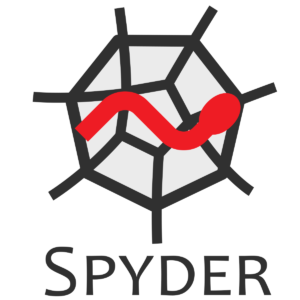
- By Anaconda distribution
- Type: Open-source
- Supported by Qt, Windows, macOS, and Linux.
The exciting fact about Spyder is that it's built using Python. Spyder is designed explicitly for Python data analysis. For engineers and data scientists who have a keen interest in scientific development, Spyder would be a great IDE. You can run Spyder by installing the Anaconda distribution. Anaconda is a famous Python distribution for data science and machine learning .
Spyder Features:
- Code Editor
- IPython console
- Variable Explorer
- Profiler
- Debugger
- Support for many data Science libraries .
- 3rd-party plugin support.
Pricing: Free.
3. Thonny

- By Aivar Annamaa and contributors
- Type: Open-source
- Supported by Windows, Linux, and macOS.
Thonny is recently introduced as an IDE for Python. If you are a complete beginner looking for an IDE, Thonny can help you start your Python journey. Thonny is specially designed for beginners. It is small in size and works great on low-end computers. Other Python IDEs can be too complex to pick up for a newcomer, but operating Thonny is very easy.
Thonny Features:
- Easy to get started.
- No variable hassle.
- Easy to debug.
- Steps through expression evolution.
- Faithful representation of function call.
- Highlights syntax error.
- Explain scope.
- Mode for explaining references.
- Code completion.
- System Shell.
Pricing: Free.
4. IDLE

- Developed By Guido van Rossum
- Type: Open-source
- For Linux, macOS, and Windows.
IDLE (Integrated Development and Learning Environment) is the default Python IDE and the Python interpreter. When you download Python from its official website, the IDEL IDE comes along with it. Hence, you do not need to install it separately.
Even if you install the updated version of Python, the compatible version of IDLE also installs with it. IDLE is beginner-friendly, but using it for big projects is not a very good idea. Although IDLE provides many customization features, it lacks some basic IDE features that other top-notch Python IDEs offer, such as auto-ending brackets and quotes.
IDLE is intended for the educational environment. That's why it is lightweight and does not consume many CPU resources.
IDLE Features:
- It provides a colorful console.
- Python Shell with syntax highlighting.
- Basic features like a text editor, smart indentation, and auto-completion.
- Integrated highlighter debugger.
Pricing: Free.
5. Eric
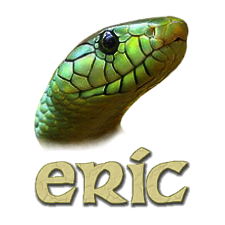
- Developed by Detlev Offenbach
- Category: Open-source
- For Linux, macOS, and Windows
Eric is one of the most popular IDEs of Python. You can download it for free, and it is available for various popular platforms, which include Linux, Windows, and macOS. Eric provides all the basic and advanced features you can expect from the best Python IDE.
If you are into Python GUI-based applications and use the PyQT library, Eric is the best IDE for you because it is written on Python 3 and QT library and is mainly used for Python development. Although Python has disbanded Python 2, you can still execute your Python 2 code using Eric because it supports both versions of Python, i.e., Python 2 and Python 3.
Eric Features:
- Provides a source code editor tool with configuration window layout, brace catching, Error highlighting, Integrated Class browser, and many other features.
- It provides perfect compatibility with PyQT.
- Provides built-in version control features that are not offered by many open-source IDEs.
- Features an integrated web browser with built-in integrated support for the Django framework. Even PyCharm does not provide proper support for Django.
- It supports both Python 2 and Python 3.
Pricing: Free.
6. Wing

- By Wingware
- Wing Personal and Wing 101 (free), Wing Pro (paid)
- Type: Free and commercial
- For Windows, Linux, and macOS.
- You can download it from here .
The wing comes with a plethora of features. It is an advanced IDE highly recommended for professionals. The powerful debugger and intelligent editor are two main assets of Wing that attract many Python developers to code on it. The speed and accuracy of Wing IDE are uncompromising. It supports many Python frameworks, such as Django , Flask, and PyQt.
Wing Features:
- Powerful debugger.
- Intelligent editor.
- Easy code navigation.
- Integrated unit testing.
- Recursive debugging.
- Version control.
- Project management.
- Support for Python 3.6, Vagrant, and Jupyter.
Pricing: Free.
7. Eclipse + PyDeV

- By Eclipse
- Category: IDE + Plugin
- Type: Open-source
- For Windows, Linux, MAC, etc.
PyDev is a plugin for Eclipse IDE. As Eclipse is specially designed for Java development, the PyDev plugin extends the functionality of Eclipse to support Python development. To use PyDev, you need to install Eclipse and, from the Eclipse marketplace, install PyDev. Once you have successfully added PyDev to your Eclipse IDE, you will be introduced to new features like Python debugging, code completion, and an interactive Python console.
The major disadvantage of using PyDev is CPU consumption. Eclipse itself is cumbersome software that consumes a lot of CPU resources. Therefore, adding extra plugins worsens the problem of CPU consumption.
PyDev Features:
- Support Django integration.
- Auto code suggestion.
- Type hinting.
- Debugging.
- Python console.
- Supports Mypy, black formatter, virtual environments, and analyzing f-strings.
- Syntax highlights.
Pricing: Free.
8.
Rodeo

- By Anaconda Distribution
- Type: Open-source
- For Windows, Linux, and macOS.
Rodeo IDE is well known for performing data science tasks in Python. Data scientists prefer it because of its lightweight build and flexibility. Although it is straightforward to install and run Rodeo on Windows, macOS and Linux users could find it tricky because they need to install Python and some other packages to run Rodeo. Nonetheless, Anaconda Distribution provides an alternative and easy way to install Rodeo on various platforms.
Rodeo Features:
- Auto-Completion of code.
- Python console.
- IPython support.
- Syntax highlight.
Pricing: Free.
9. Jupyter Notebook
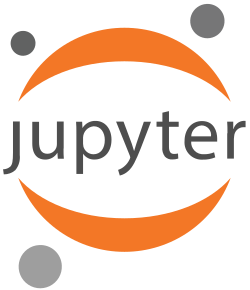
- Developed by Jupyter Project
- Type: Open-source
- For Linux, macOS, and Windows.
Jupyter Notebook is an open-source, web-based Python IDE. It allows us to code in Python and has an attractive input/output interface. You can edit and run notebook documents via a web browser. Many of the codes shared by the GitHub community are directly accessible via Jupyter Notebook. Many Python data scientists use the online IDE because it has high compatibility with Python data science libraries.
Jupyter Notebook Features:
- Interactive console.
- Auto-completion feature.
- Easy debugging.
- Highly compatible with data science libraries.
- Easy to use.
Pricing: Free.
10. Komodo IDE

- By ActiveState
- Type: Open-source
- For Linux, macOS, and Windows.
Komodo IDE is a multi-language IDE that supports more than 20 programming languages. It includes all the popular ones, such as Python, Perl, Ruby, HTML/CSS, and JavaScript. It is one of the best Python IDEs for web development. Komodo IDE is available free of cost for all popular operating systems.
Komodo Features:
- It comes with an integrated Python interpreter.
- Uses Mozilla and Scintilla code base to support various popular web technologies like Python, Perl, PHP, Ruby, Tcl, SQL, Smarty, CSS, HTML, and XML.
- It supports user customization via plugins and macros.
- Comes with an integrated DOM viewer and an interactive shell.
Pricing: Free.
11. PyScripter

- By Kiriakos Vlahos
- Type: Open-source
- For Windows only.
PyScripter is a lightweight Python IDE for Windows users. It is specially designed for Python development and provides pretty much all the primary (and even some advanced) features provided by any other best Python IDE. It is one of those IDEs which is highly recommended for beginners. PyScripter is ideal for Python developers who do not have a high-processing CPU but want to work with Python IDE.
PyScipter Features:
- It supports the syntax highlighting editor.
- Provides full support for encoded Python source files.
- Simultaneously checks the code syntax while writing the code.
- Comes with an integrated Python interpreter.
- Shows command history.
- It comes with integrated unit testing, which supports automatic test generation and unit testing GUI.
Pricing: Free.
12. Anjuta

- Developed by Naba Kumar
- Type: Open-source
- For Unix-like operating systems.
Anjuta is a very popular IDE among the UNIX-like operating systems. With it, you can write code for multiple languages, which include C, C++, Java, JavaScript, Python, and Vala. As it is not available for macOS and Windows platforms, Anjuta is not as popular as other Python IDEs on the list.
Anjuta Features:
- Interactive code editor with a powerful debugger built over GDB and integrated compiler.
- Source code editor with source browsing.
- Project management.
- Application wizard.
- CVS and Subversion version control system integration.
Pricing: Free.
Best Python Text Editors
Text editors are smaller in size as compared to IDEs and consume fewer CPU resources. Here is the list of top Python text editors.
1. Visual Studio Code (Python Tool for Visual Studio)
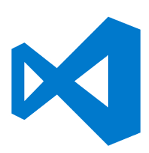
- By Microsoft
- Type: Open-source
- For Linux, macOS, and Windows.
Visual Studio Code is among the most popular code editors. It is considered the second-best tool for Python developers. However, it is not initially designed for Python, but we can make it compatible with Python using the free and open-source extensions.
Although it is a text editor, Visual Studio Code can provide more features than an open-source Python IDE. We can customize Visual Studio Code like an enterprise-ready IDE by installing extra extensions or plugins. It is very beginner-friendly, and due to its small size, it does not consume many CPU resources.
Visual Studio Features:
- Comes with a very interactive code editor that supports syntax highlighting and code completion using IntelliSense for variables, functions, methods, loops, and LINQ queries.
- It is highly compatible with front-end and back-end technologies like HTML, CSS, JS, and Django.
- Also supports bookmarks for quick navigation.
- It has a powerful debugger that provides syntax highlights for warnings and errors.
- Features many open-source plugins; the Python plugin is one of them.
Pricing: Free.
2. Atom

- By GitHub
- Type: Open-source
- For Windows, Linux, and macOS.
Atom is an open-source Python text editor; you can also write other programming languages. It lets you add packages to access different features. The Python source code editor gives you the customisation flexibility and runs it according to your requirements.
Features of Atom:
- Works across different platforms.
- Built-in packages.
- Suggest autocompletion for the code.
- Highlights error.
- Different colors for different keywords.
- Customizable theme.
Pricing: Free.
3. Sublime Text

- By Sublime HQ
- Type: Open-source and commercial
- For Windows, Linux, and macOS.
If you are familiar with PHP, you must have heard of Sublime, famous for PHP development. Sublime is written using C++ and Python. It is one of the best text editors for Python developers. The lightweight and versatile nature of Sublime Text makes it a top-notch Python source code editor.
Features of Sublime:
- The split layout.
- The Chrome-like tab helps you to switch files easily.
- Color highlighting.
- Auto completion.
Pricing: You must purchase a license for Sublime Text, which is available for $99.
4. Notepad ++

- By Don Ho
- Type: Open-source
- For Windows, Linux, and macOS.
Notepad++ is a classic text editor used for various top programming languages . It is very easy to download; even a system with a low configuration can also run this editor. The simplicity of Notepad++ compels developers to code on it.
The main problem arises when you need to run the code; first, you need to save the written file as a Python file. Then you need to run it through the command prompt. You can't access cmd directly through Notepad++.
Notepad++ Features:
- Syntax highlighting.
- User-defined folding.
- Search and replace.
- Multi-language support.
- Lightweight.
- Auto-completion.
Pricing: Free.
Best Online Python IDEs
By far, we have only covered the best Python IDEs and text editors that can be installed on various operating systems. In our opinion, PyCharm is the best Python IDE for Windows, macOS, and Linux users, and Visual Studio Code is the best Python text editor.
But if your wish to execute your Python code online or if Python is not installed on your system and you want to check the output of a Python program in a jiffy then you can use online Python IDEs or compilers. Here is the list of best Python online compilers that will help you to execute the Python code on the web:
1. AWS Cloud9 IDE

- By Amazon
- Type: Commercial
- Category: Online IDE
It is an Online IDE offered by Amazon, and it lets you write, run, and debug your Python code on the browser. AWS Cloud9 IDE includes a code editor, debugger, and a command terminal like any best Python IDE. In addition to Python, it supports all the popular programming languages, including PHP and JavaScript.
One of the significant benefits of Cloud9 IDE is that you do not need to install any software on your local system. Just visit the Cloud9 official website and start coding. Your program files will be stored in the cloud, and you can access and execute them from any device.
You can also share your work with other developers very easily. Moreover, Cloud9 provides a sharing feature that helps you to share your development environment with your team.
AWS Cloud9 Features:
- Syntax highlighting.
- Supports multiple languages.
- Online code compilation.
- Supports various plugins.
- Supports concurrent editing from multiple users.
- Built-in terminal with npm and basic Unix commands .
- Supports deployment to Heroku, Azure, AWX, etc.
Pricing: There are no additional charges for AWS Cloud9. If you use the Amazon EC2 instance for Cloud9, you must pay only for the computing and storage resources needed to run your code.
2. PythonAnywhere

- By PythonAnywhere LLP
- Type: Proprietary Online IDE
It is an Online IDE that also provides a web hosting service feature, which means you can deploy your Python web project on it. PythonAnywhere provides an interactive code editor that allows you to write, edit, and debug your Python code online.
This online Python IDE is specially designed for Python and provides Django and Flask frameworks out-of-the-box support. It also has a Bash command-line interface that allows you to run your web project online. Using its Bash terminal, you can also import your GitHub project repository code to your PythonAnywhere account.
PythonAnywhere Features:
- To use it, you need to create an account.
- It supports all versions of Python.
- Supports WSGI-based hosting for Django, Flask, and web2py projects .
- Includes many popular Python modules.
Pricing: You can create a beginner account and use PythonAnywhere for free, but it provides limited features. The other pricing plans include
- Hackr: $5 per month
- Web Dev: $12 per month
- Startup: $99 per month
- Custom: Custom pricing
3. PaizaCloud IDE

- By Gino INC.
- Type: Paid
It is also a powerful online IDE platform that supports various web development environments, such as Ruby on Rails, Node.js, Django, MySQL , WordPress, Java (Tomcat), PHP (LAMP), Laravel, and Jupyter Notebook. PaizaCloud IDE allows you to save and share your code online. With the online Python IDE, you do not need to worry about downloading any file to your local system, and you can access your code from anywhere and using any device.
PaizaCloud Features:
- Built-in Unix-based terminal.
- Code completion for snippets and identifiers.
- Supports simultaneous multiple-user editing.
- File management.
- Supports various plugins.
- Features a drag-and-drop option to import files and projects.
Pricing: PaizaCloud IDE provides three different pricing plans, as follows:
- Free: Free forever
- LITE: $9.80 per month
- BASIC: $19.80 per month
4. SourceLair

- By Sourcelair Private Company
- Official Website: Here
SourceLair is an online IDE that supports more than 25 programming languages. It is considered one of the best online Python IDEs because it is built on Python and Django, providing very high compatibility for both Python and Django. With the web-based Python IDE, you do not need to worry about downloading, installing, or configuring any files. It supports all popular web tools, such as HTML, CSS, JS, Django, Node.js, MySQL, and MongoDB.
SourceLair Features:
- It can be integrated with git, GitHub, and Heroku.
- You can easily share your programming environment with your team and other developers.
- No need to install or configure any file on your system.
- Executes code online.
- Supports all popular web tools.
- Highly compatible with Python and Django.
Pricing SourceLair has two different pricing plans, as follows:
- Lite: $10 per month
- Pro: $25 per month
Conclusion
With this, we have reached the end of our article on the best Python IDEs and text editors for Windows, macOS, and Linux operating systems. If you are a complete beginner without prior knowledge of programming and IDEs, we suggest you download and use Visual Studio Code, Sublime, Atom, or IDLE. Using full-fledged IDEs like PyCharm, Spyder, and JupyterNotebook could be overwhelming for a beginner.
If you want to learn Python , practice as much as possible. You can use either Python IDEs, or Python text editors mentioned above.
People are also reading:
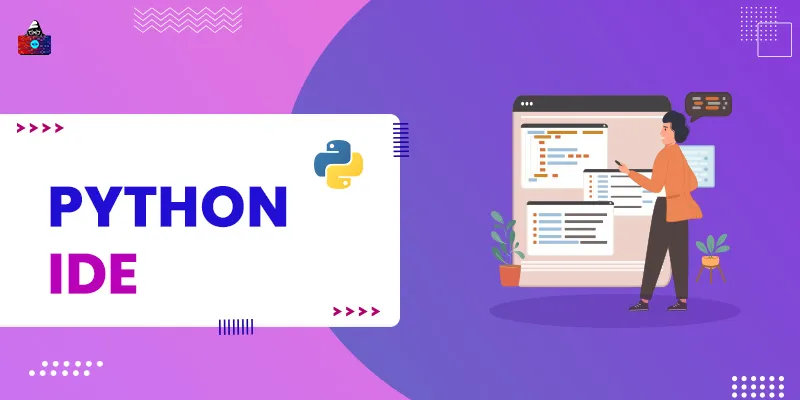




Leave a Comment on this Post